There has been a staggering rate of sea level rise along the Bay of Bengal. Kolkata, a low-lying city, approximately five meters above sea level, is vulnerable to global warming and the concomitant climate crisis. The World Bank indicates that a 20 cm sea level rise would make Kolkata the third most exposed city in the world to the risk of flooding. Kolkata has experienced a rise in temperature of 1.2 degrees Celsius, the highest in India, which increases storm activity due to high degrees of precipitation.
The Bounty and promise of the wetlands
Kolkata’s innumerable freshwater and salt-water bodies, if we cherish, manage, and protect, will play a vital role in mitigating our tenuous climate future These wetlands play a pivotal role in naturally treating our sewage through a self-sustaining system, partly natural and partly engineered. Additionally, the wetlands provide abundant fresh vegetables and a range of fish. For residents with little access to water, the ponds are places to wash and bathe. Beyond these utilitarian functions, water bodies are a haven for life – trees surround them, fish live in them, birds find a home and people gather to enjoy their irresistible beauty and ambience. Ponds are a community, cultural, and ritual space.
In 1981 Dhrubojyoti Ghosh decoded the role of the East Kolkata Wetlands (EKW) in treating Kolkata’s waste and raised awareness about the importance of protecting them. The EKW is recognized by the Ramsar Convention (1971), the intergovernmental treaty that provides the framework for the conservation and wise use of wetlands. People United for Better Living in Calcutta, PUBLIC, won the first legal battle to preserve them. The EKW is the only Ramsar site in the world that has the ability to recycle the city’s sewage into a profitable agriculture and fishing activity that supplies the city with affordable food due to low transport costs.
The Jaladarsha Collective: Barefoot research and advocacy
For more than two decades “state sponsored corporate colonization” has endangered the wetlands. Local grassroots initiatives, such as the Jaladarsha Collective (JC), are drawing attention to the importance of the wetlands. Sayantoni Datta, researcher and founder of the Jaladarsha Collective, notes: “Over 50 percent of water bodies we surveyed are in a state of neglect. Satellite images of the East Kolkata Wetlands show a similar scale of loss. There are over 350 complaints of encroachment registered.”
Theater practitioners, writers, dancers, painters, and community members formed the Collective in 2019. Its members direct art to reclaim our connection to the environment. JC nurtures collective community art practices and does barefoot research to raise the voices of the most marginalized communities directly affected by climate crisis and environmental hazards.

This group of citizen activists have conducted walks in distinct parts of the city to locate water bodies and learn about their uses from people living around them. In 2022, JC surveyed eight wards in southeastern Kolkata where there was rapid urbanization and expansion to assess the health of 250 water bodies. They note that though over 50 percent of the water bodies are dumps for wastewater and garbage, poor people rely on them for bathing, washing, and cooking. In 2023 they conducted a similar audit of four wards in eastern Kolkata surveying 61 ponds. Jaladarsha has published two booklets on their findings with recommendations for preserving these water bodies for local government authorities, developers and for citizens to undertake action-based programs for conservation.
Partnering to clean up water bodies
The land mafia presents the biggest challenges to cleaning water bodies in the city. Jaladarsha, in partnership with the fishing community, has cleaned pond ecosystems in the city that are part of the EKW. Fishing communities receive a lease for a water body from the fisheries department. If they are unable to maintain a waterbody, they are sometimes compelled to hand it over to other investors and leaseholders that leads to the loss of the wetlands. Thus, the Birji Patauli fishing cooperative was keen to partner JC in cleaning the waters that had become stagnant and rancid due to the dense growth of water hyacinth in three ponds covering 15.5 bighas of EKW.

Fishing cooperative members play a vital role in cleaning and maintaining the water bodies including ensuring that the right kind of fish are cultivated to keep the waters clean and ensure ecological balance. Rapid urban expansion has led to the loss of their lands making them dependent on pisciculture. To revive the three ponds, community members removed water hyacinth manually, drying the plant on the sides of the ponds to serve as fish food. The process of cleaning is time and labor intensive but is more ecologically sustainable than rapid beautification. The collective also trained women in the community to make products from water hyacinth, The Collective continues to collaborate with communities facing loss of water bodies.
Raising awareness and cultural commitment to a shared future
On April 22nd, Earth Day, the Jaladarsha Collective held a community event to celebrate the cleaning of ponds at Patuli and to raise awareness on the importance of revitalizing the wetlands. The event was on the premises of the fishermen’s collective, Birji Patuli Matsyajibi Samaybay Samiti. The entire area decorated by the artists was festive. Beautiful wall panels were themed around Water – its abundance, scarcity, and significance in the Circle of Life. Wetland residents and environmentalists conducted a community forum on the state of communities at the EKW, and discussed the actions needed to preserve and maintain them. Community members and activists shared their struggles, stories, and knowledge of the local solutions to nutrition, waste management and kitchen gardening. Local women displayed their artwork and hand-made products with water hyacinth. Folk dance performances, flash dances, music, and theater poignantly and powerfully rendered environmental messages. The cultural events brough attendants together to make a sacred commitment to revere and protect the environment.
Also read: Harry Bids Farewell
The spirit, dedication, sophistication, and talent of the young activists partnering with local communities most impacted by climate change is inspiring. They must be coupled with sustained, transparent, informed state and local action by duty bearers to protect the wetlands. The JC asserts: “Creating systems of accountability around neglect, inaction or malpractice by duty bearers through public hearings or people’s tribunals is essential.”
Local actions such as this initiative that combines citizen research, advocacy for policy change, action through partnership with local communities, and art for social change provide a pathway to safeguarding our collective future, one pond at a time.
Image courtesy: Jaladarsha Collective & Wikipedia
Jael Silliman, born in Kolkata, was educated at Wellesley College, Mass., Harvard University, University of Texas, Austin. She received her doctoral degree in international education at Columbia University. She has written extensively on gender and economic development, and women’s movements in the developing world. 'The Teak Almirah', 'Where Gods Reside: Sacred Places of Kolkata', 'Jewish Portraits, Indian Frames: Women's Narratives from a Diaspora of Hope' are some of her published works.


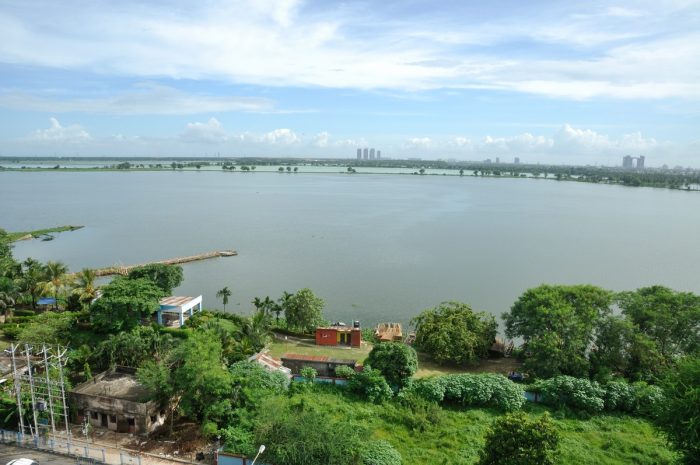
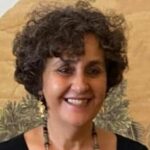

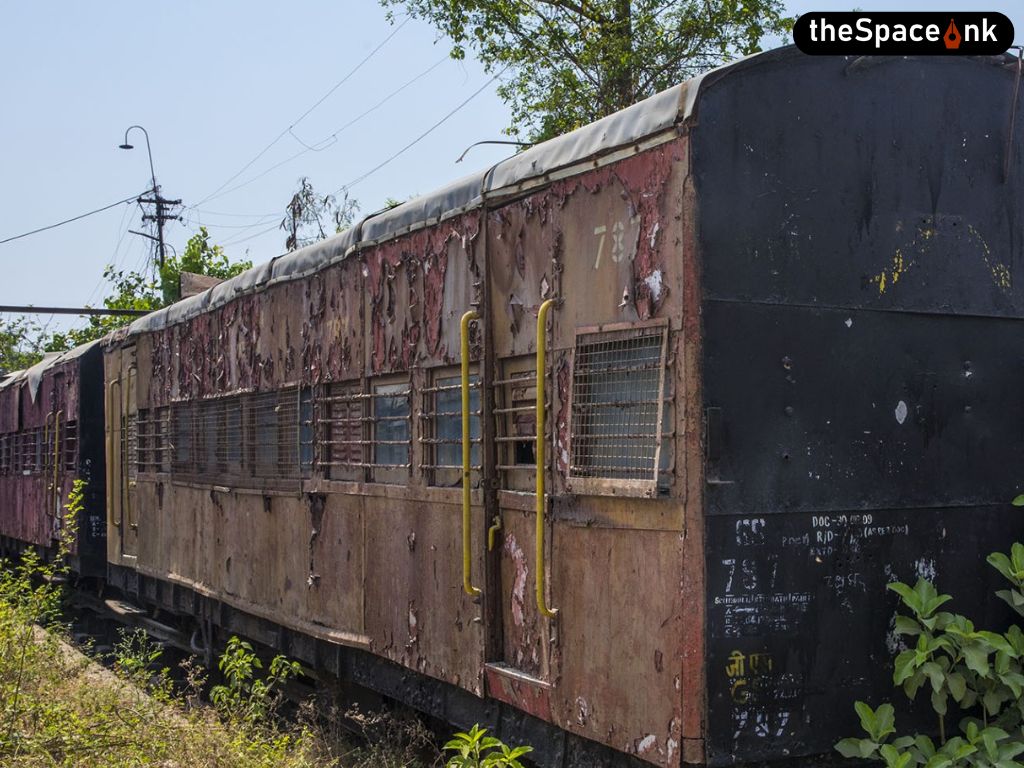
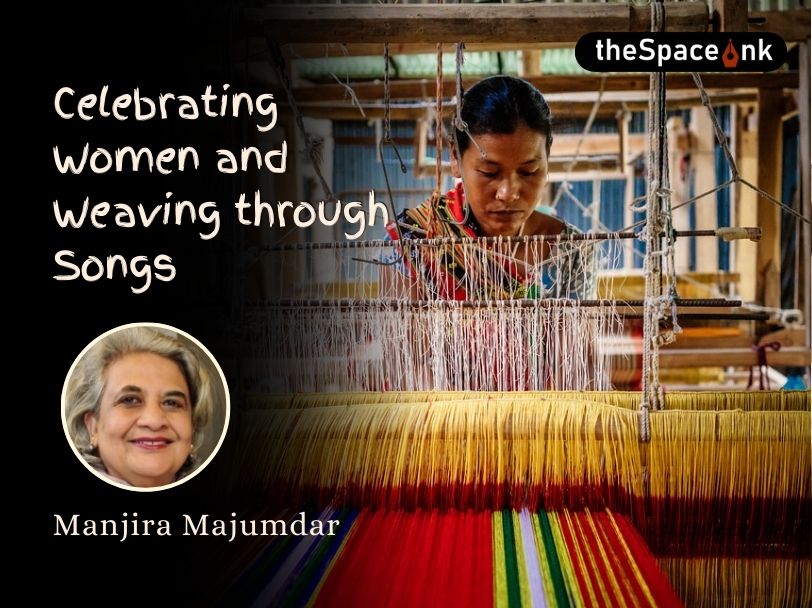
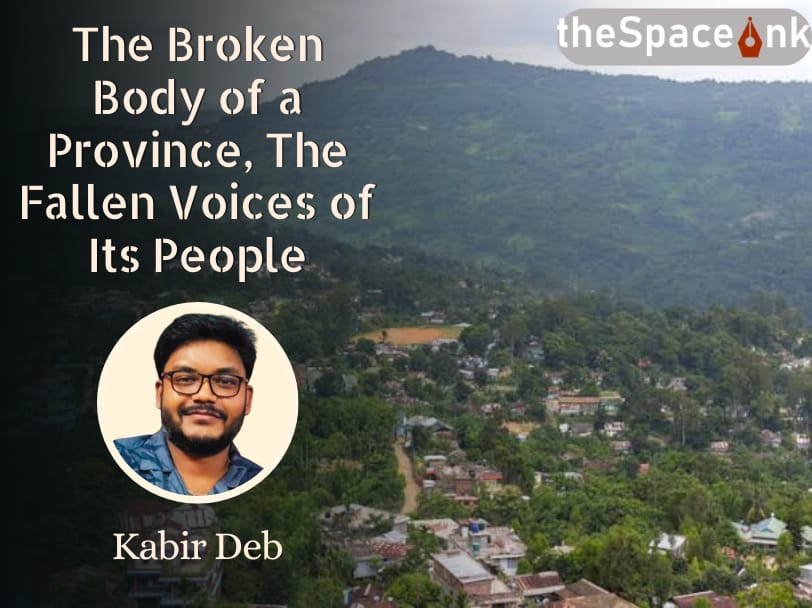

6 Responses
To all my friends in and out of Kolkata from Houston. The above article has been written by my friend, Jael Silliman. She’s one of the last few Syrian Jewish residents of Kolkata. Dr. Silliman is an activist, intellectual, artist and a prolific writer. I found the article very interesting and pertinent to the Kolkatans, who for the most part are oblivious of the dangers facing the city from various causes, one of which is the climate change and the rising of the oceans. The other is of course very self evident – the turning of a vast green wetland into a vast white concrete wasteland, one of the main reasons for all the flooding in the city. All this brought to our attention by a now depleted member, to numbering in tens, of Baghdadi Jewish population, soon to be none left, with them migrating to Israel and elsewhere.
A good read and well researched article…It is high time concrete steps are taken to save the ponds of Kolkata….kudos to the concerned organisations that are actively participating to the needful…As a concerned citizen of Kolkata who loves his city I thank Mam Jael for writing this piece and creating awareness about this issue..
Very in depth 👌
Excellent piece. The idea of art for social change and building systems for accountability are inspiring.
Excellent analysis. This is serving us as effluent treatment plant for kolkata silently for long many years. But these days i have got a report of that area like this:
*ll ময়নার ময়নাতদন্ত – আরও একটা মিনামাটা ll*
ময়না মানে পাখিটাখি নয় l ময়না মানেই ছেলেবেলার বন্যায় আধডোবা মানুষদের সাহায্য চাইতে আসা ক্ষুধার্ত মুখ l দিন গড়িয়েছে আরো চার দশক l এখন ময়না এক মডেলের নাম l নীল বিপ্লবের নাম ময়না l মাছচাষ বা পিসিকালচারে সারা বিশ্ব অনুকরণ করে ময়নাকে l ও পথ দেখাবে আগামী পৃথিবীকে l মাছচাষে ময়না পৃথিবীর প্রথম সারির l
ওখানকার ভূ-প্রকৃতিগত কারণে জমি নিচু l অল্পে জল জমে l কৃষি (ধানচাষ) অনিশ্চিত l অতিবৃষ্টিতে একমানুষ জল, নইলে ফসল ফললে গোলা ভর্তি l তবুও সহপাঠী বন্ধু কিংবা সিনিয়রদের দুঃখ করতে শুনি নি কোনোদিন l আমরা আহা ওহ্ করলেই ওরা উল্টে বলতো, “ওরে শোন, বন্যা আমাদের গা সওয়া l বন্যা আমাদের লক্ষ্মী l বন্যা না হলে মনে কষ্ট ভারী l সবার বাড়িতে ডিঙি নৌকা বাঁধা l ধান না হলে মাছ l সে মজা যে পায় নি, তার জীবনই বৃথা l বন্যায় কোন কষ্ট অসুবিধে হয় না আমাদের” l দিব্যি চলতো সব্বার l তেমনই পড়াশুনায় মন ছেলে-মেয়েগুলোর! ওদের জেদ আর প্রতিষ্ঠা পাবার নেশা সবকিছুই দেখবার মত l
এ পর্যন্ত সব ঠিকঠাক l তারপর আসে লোভ l লোভ একবার অঙ্কুর হলে তার বেড়ে ওঠা থামায় কার সাধ্যি ? একে একে ধান চাষের জমি পরিণত হতে লাগলো মাছের ভেড়ীতে l সবই বে-আইনি l জমির চরিত্র বদলের আইন ছাড়াই দখল হতে থাকে শ’ শ’ বিঘে l কেউ আর জলকাদা ঘেঁটে চাষ করতে চায় না l অভ্যাসটাও চলে গেল l আবার কেউ কেউ চাইলেও বুকে বন্দুক ঠেকলে সে ইচ্ছে উবে যায় l তার বদলে বিনে বিনিয়োগে বিনে পরিশ্রমে বছরে মোটা টাকা এলে ক্ষতি কি? তার ওপর যদি ফি-বছরের বন্যায় চাষের ক্ষতির টাকা ঢোকে ব্যাংকে – তাহলে দুটো লাভ l চলছে এভাবেই l
করকরে টাকা l অলস সময় l দেদার নেশা l চুপ প্রশাসন l পরিবেশের শ্রাদ্ধবাসর বসে প্রতিদিন l ওই অনুষ্ঠানে উন্নয়নের গাজন নাচ পরিবেশিত হয় l
ময়না যখন মডেল, তখন অনুকরণকারীর অভাব কেন হবে? টিয়া-চন্দনা-শালিক-পায়রা-ঘুঘু -এরা পাঁচ অর্থাৎ কাঁথি, নন্দকুমার, হলদিয়া, সুতাহাটা, খেজুরী ও চন্ডীপুরের হাজার হাজার বিঘে ধান জমি আজ মাছের ভেড়ী l
অসুবিধে কি এতে? সব্বার লাভ l সরকার চোখে পট্টি বেঁধে ট্যাক্স পেয়ে বর্তে যাচ্ছে, প্রশাসন অন্ধ ধৃতরাষ্ট্র সেজে বসে থাকে, পরিবেশ দপ্তর টুইংকেল টুইংকেল লিটল স্টার সুরে গাইতে থাকে, ছোটো জমির মালিক লিজের টাকা পেয়ে বাইক কেনে, পার্টি ফান্ডেও প্রণামী আসে বিস্তর l দু’-চারজনের কাজ-কাম যে হয় না তা নয় l মালিক নিজের জমিতে মজুর খাটে l নব্য ভেড়ীর মালিকের লাভ l এভাবেই সবার দুঃখ ঘুচে আঁধার কেটে আলোর মুখ দেখছিল ময়না, আর তাকে অনুসরণকারী বাকিরা l
এদিকে মাছের আঁশটে গন্ধ ছড়িয়ে দিল একটা সংখ্যা l ৩০০!
কি সেই সংখ্যা?
লাশ l
কার?
মাছচাষীর ওরফে মৎস্যজীবীদের ওরফে কৃষকবন্ধুর l
কিসে মৃত্যু?
হৃদরোগ আর কর্কট রোগে l
কত সময়ে?
এক বছরেই l
কোথায়?
একটা ব্লকে?
কোন্ সে ব্লক?
ময়না l
একটা ব্লকে একবছরে লাশ 300 !
সন্দেহ হলে, 6 কোটি টাকা কে 2 লক্ষ দিয়ে ভাগ করে নাও l সো সিম্পল!
কত বয়েস ওদের ?
৬০ এর কম l
কত কৃষি জমি?
১০,৫০০ হেক্টর l তবে কাগজে কলমে কত জমি সবুজ মাখে ? চাষ হয় কত?
বড়জোর ৩,০০০ হেক্টর l
বাকী জমি কোথায় গেল?
লুট হয়েছে l স্রেফ লুট l ও জমি জলে ডুবে থাকে চিরটাকাল l ওই জমি মেকি ঝুটা উন্নয়নের আর লোভের অ্যালকোহলে বুঁদ l বিষ মেখে নীল শরীর l অ্যান্টিবায়োটিক কোষে-কলায়-হাড়ে-মজ্জায় l কোন প্রতিরক্ষা ব্যবস্থাই আর কাজ দেয় না ওদের শরীরে l জল, মাটি, প্ল্যাঙ্কটন, মাছ, সব্জি, ফলমূল -সমস্তই এক এক বিষের থলি l লোভের যেখানে থাবা বসে, সেখানে শ্মশান হওয়াটা সময়ের অপেক্ষা l কাঁচা পয়সা হাতে এলে জল তখন ব্রাত্য, বদলে মদে তখন চলাচল l ব্রেকফাস্ট থেকে ডিনারে অলসতায় মদে মদিরায় ভাসছে ময়না l অফুরন্ত যথেচ্ছ রাসায়নিক সার — ফসফেট মাটির গর্ভের জলকে ক্যান্সারের আঁতুড়ঘর করে তুলেছে l প্রতিদিন লরি লরি পানীয় জল চালানে জল লুট হয়ে যাচ্ছে মাটির ভাঁড়ার থেকে l যথেচ্ছ হরমোন – সে প্রাকৃতিক আর কৃত্রিম হোক না কেন কিংবা তাদের অ্যানালগাস কোন পদার্থই হোক কিংবা মাইক্রো বা ন্যানো প্লাস্টিক বা অ্যান্টিবায়োটিক হোক – প্রত্যেকটি গবগবিয়ে প্রত্যক্ষ বা পরোক্ষ ভাবে খাদ্যে, জলে, মাছে, ডিমে, সবজির মাধ্যমে খাদ্যজালে এসে কৃষকবন্ধুর শরীরে ঢুকে কোষ বিভাজনের নিয়ন্ত্রণ-সাম্য তছনছ করে যাচ্ছে রাতে-দিনে l তার ওপর কাঁচা পয়সায় হাতছানি, অনিয়ন্ত্রিত জীবনশৈলী মৃত্যুকে নিশ্চিত করেছে l
এর সঠিক কারণ অতি শীঘ্রই আসবে সবার সামনে l ৬০ হাজার কৃষকবন্ধু l তাদের মধ্যে এক বছরে ৬০ বছরের কম বয়সে ৩০০-র বেশী মৃত্যু ক্যান্সার আর হৃদরোগে ! বিনে পরিশ্রমে পি. এম. কিষানের টাকা ঢুকছে l সঙ্গে কৃষিবন্ধুর টাকা l অথচ জমি লিজ নিয়ে বসে আছে নেতা-মহাজন l জমি নেই হাতে অথচ টাকা সরকারি ভাঁড়ার থেকে আসছে, আর মৃত্যুর পরেও দু’ লক্ষ টাকা লাশপিছু আসছে l সঙ্গে আছে দেদার ফুর্তি আর ক্ষমতা ধরে রাখার বর্বর রক্তক্ষয়ী রাজনৈতিক ইন্ধন l বিগত বছরগুলোতে সবসময় খবরের প্রথম পাতায় – ময়না l মডেলই বটে!
মাছের তীব্র গতিতে বেড়ে উঠবার বিশেষ খাবারে ভারী ধাতু আর্সেনিক, ফ্লোরাইড, নিকেল, কোবাল্ট, পারদ, ক্যাডমিয়াম কি নেই ? জমছে কিংবা বিবর্ধিত হচ্ছে হাড়ে, মাংসে, রক্তে, মজ্জায় l জাপানের মিনামাটা আজও আতঙ্ক l এ এক নতুন মিনামাটা ময়না! কিন্তু কোন শিক্ষাই হয় নি আমাদের l ও সমস্ত কথা বইতে লেখা থাক না l আমাদের কিছুই হবে না – গোত্রের ভাবনা l ডি.ডি.টি.-এর জৈব বিবর্ধন আমাদের এখনো সতর্ক করতে পারলো না – সাইলেন্ট স্প্রিং লিখবার 50 বছর পরেও l প্রসঙ্গ এলেই অর্থনীতি আর পরিবেশের বানানো ঝগড়া বাধিয়ে, পরিবেশবিদদের “শখের গবেষক” কিংবা “নন প্রাকটিক্যাল” তকমা দিয়ে বসিয়ে দেওয়া হয়েছে চিরটাকাল l আর উল্টোদিকে “গরীব মেহনতী মানুষের পেটের ভাত-কাপড়ের পাশে আছি” – মার্কা সেন্টিমেন্টকে ভর করে রাজনীতির কোরমা গিলছে শাসক আর বিরোধী উভয়েই, যুগে যুগে l বিজ্ঞানের কথা এলে, পরিবেশের কথা এলেই অর্থনীতির ব্যাটে ছক্কা হাঁকান সব্বাই l নেতা-মন্ত্রী-মেকী গণতন্ত্রপ্রেমী-দালাল গোষ্ঠী সব্বাই l এদিকে মাটি তার পি এইচ কমিয়ে অ্যাসিডিটিতে ভুগছে l পি এইচ 6 এর নীচে l কোন্ অ্যান্টাসিড তাকে সুস্থ করবে? ময়নায় কাঁচা পয়সা ওড়ে l কায়িক শ্রম নেই l বাড়ীতে শাক-পাতা, সব্জি, ডাঁটা – কেউ ফলায় না l সবাই পয়সা ফেলে বাজারে l সবাই কিনে খায় l বাড়ীর সব্জিবাগান দেউলিয়া l গ্রাম্য সংস্কৃতি সব জায়গায় লোপ পেলেও ময়নার পরিবর্তন বৈপ্লবিক l পেস্টিসাইড, সার, হরমোন এর প্রভাব যাবে কোথায়? অ্যান্টিবায়োটিক মেরে ফেলেছে সমস্ত বন্ধু-ব্যাকটেরিয়াকে l ভাইরাস জেগে উঠছে ধীর কিন্তু নিশ্চিতভাবে l বিদেশী মাছের খাবারের ভেতর দিয়ে নিত্য ঢুকছে নানান ভাইরাস, কেবল উপযুক্ত পোষক পাবার অপেক্ষায় l 2000 সালে পশ্চিমবঙ্গে চিংড়িচাষের মড়ক – হোয়াইট স্পট ডিজিস – এর কথা ভুলি নি কেউই l কোথাও কোন নিয়ম – কোন সীমা – কোন আগল – কোন নিয়ন্ত্রণ নেই l এক ব্রেকবিহীন গাড়ী, আর মত্ত চালক – এ পরিণতি তো জানাই ছিল l তবে এ শেষের শুরু l একে একে অন্য ব্লক থেকে খবর আসার অপেক্ষা l
ভাবা যায় ! মাত্র একটা ব্লকের এই তথ্য! এক বছরে ১৮০ জন শুধু ক্যান্সারে ? একটা লাশ পড়লে সরকার দিচ্ছে 2 লক্ষ টাকা l এক বছরে একটা ব্লক কে ৬ কোটি টাকা দিতে হয়েছে ৩০০ জীবনের জন্য l জীববৈচিত্র্য নস্ট হয়ে গেছে l সারা বছর ঘাস, ধান, সব্জি, ফুল, পাকুড়, ব্যাঙ, মাকড়সা, পিপড়ে – এরা সবাই খাদ্যজাল দিয়ে সুস্থিত পরিবেশ গড়ে তুলত ময়নায় l মাঝে বন্যা হানা দিত ঠিক কথা, কিন্তু 300 প্রাণ নিল ক্যান্সার? সু-স্বাস্থ্য রাখতো মাঠপুকুর, নয়াঞ্জুলি, খাল বাওড়, পতিত জমি – সব্বাই মিলে l এখন শুধুমাত্র মাছচাষ l তাও আবার মনোকালচার l একটাই দেশ – একটাই ভাষা থাকবে, একটাই ধর্ম হবে, একটাই পোশাক, একই খাদ্য ! আহা! কি সুন্দর একের নামতা ! তাই মনোকালচার জাঁকিয়ে বসেছে l হুকুম জারি করেছেন সর্দার “এ জমি লইব লিজে …. প্রস্থে ও দিঘে সমান হইবে টানা” l
আমরা আর দো-টানায় নেই l আগুন করি বর্গা গ্রাস করে নিয়েছে l আমাদের কাউন্ট ডাউন শুরু হয়েছে আগেই l টের পাই নি l এখন আগুন দাউ-দাউ l ফিরবার পথ নাই l এখনো যা টিকে আছে বেছে বুছে আধপোড়া ঘরগেরোস্থালি টুকিটাকি নিয়ে ঘুরে দাঁড়ানোর চেষ্টা করতে ক্ষতি কি? কিন্তু লোভ? তার লালাক্ষরণ? সে তো এক অভ্যাসগত প্রতিবর্ত ক্রিয়া l তার মুখে জাল বাঁধবে কে? ময়না আরো একটা মিনামাটা হয়ে গেল! কত হাজার মরলে মানবে তুমি শেষে / বড্ড বেশী মানুষ গেছে বানের জলে ভেসে”l
Can you please put some light on this report!
Thank you for taking the time to write and share. I look forward to hearing more about “barefoot research.”